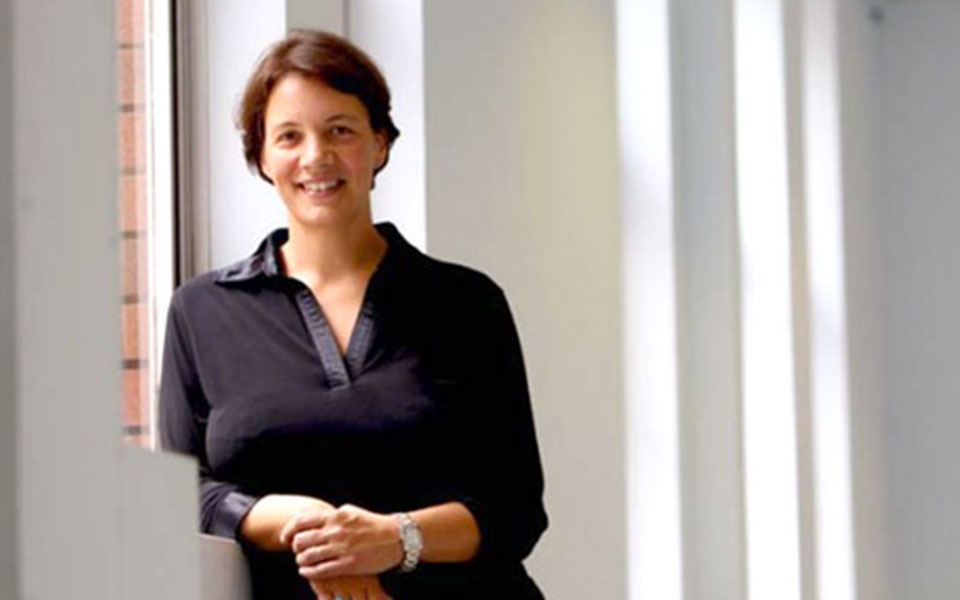Sydney, May 11: A team of Australian scientists has made great strides towards building the world's first quantum computer, using mostly standard silicon technology. The team is led by 50-year-old Michelle Simmons, a mother of three.
It is believed that the quantum computing technology could help address major global challenges like climate change and understanding complex diseases such as cancer.
"We're hoping to actually build computers here in Australia that will be able to do calculations in real time that would otherwise take thousands of years," Simmons, Professor at University of New South Wales (UNSW) Sydney, said in statement.
The winner of the coveted 2018 Australian of the Year award leads a team of more than 200 researchers at eight universities across the country developing a cache of quantum computing technologies.
In the quantum world, every time a quantum bit (qubit) is added, the amount of information is doubled.
"If I can get to 300 qubits, there's a prediction that it's more than all the atoms in the universe working together as a calculation," Simmons said, adding that her team is the only one in the world that can manipulate individual atoms to make atomically precise electronic devices.
The progress made by the UNSW research programme has been possible to a great extent due to its focus on silicon, which is industrially-compatible and forms the basis for the existing computer and electronics industry.
The team focuses on making qubits out of single atoms of phosphorus or quantum dots in silicon.
In 2017, the British-born Simmons established Australia's first quantum computing company, Silicon Quantum Computing (SQC), to develop, by 2022, a 10-qubit prototype silicon quantum integrated circuit -- the first step in building the world's first quantum computer in silicon.
The company is owned by the Australian Government, the Commonwealth Bank of Australia (CBA), Australian telecommunication Telstra, the UNSW and the New South Wales State Government.
"To be able to create technology that can be useful for humanity, to be able to create technology that can solve diseases, optimise weather patterns -- have all the implications to make the world a better place and understand the world -- is what drives me," said Simmons, who is also Director of the Australian Research Council Centre of Excellence for Quantum Computation & Communication Technology (CQC2T).
In a statement released by UNSW in March, Simmons, said her team's work is inspired by the late American physicist Richard Feynman, whose birth centenary is on Friday.
Feynman is known for his path-breaking contribution to quantum theory -- especially its electrodynamics, which won him the Nobel Prize.
"Feynman said: 'What I cannot create, I do not understand'. We are enacting that strategy systematically, from the ground up, atom by atom," Simmons said.
"In placing our phosphorus atoms in the silicon to make a qubit, we have demonstrated that we can use a scanning probe to directly measure the atom's wave function, which tells us its exact physical location in the chip. We are the only group in the world who can actually see where our qubits are.
"Our competitive advantage is that we can put our high-quality qubit where we want it in the chip, see what we've made, and then measure how it behaves. We can add another qubit nearby and see how the two wave functions interact. And then we can start to generate replicas of the devices we have created," she said.
The team's latest advance - the first observation of controllable interactions between two qubits - was published in the journal Nature Communications.
Let the Truth be known. If you read VB and like VB, please be a VB Supporter and Help us deliver the Truth to one and all.
Kalaburagi: Four men have been arrested in Kalaburagi on charge of hacking a man with lethal weapons and pelting stones at him under the limits of Station Bazaar Police Station recently.
According to police sources, Anand Jalak Shinde (34), Ashitosh Jalak Shinde (30), Imran Mehboob Sheikh (28) and Sohaib Anwar Qureshi have been arrested. The men are accused of the brutal murder of Syed Mehboob, a resident of Station Bazaar Upper Line Hamalawadi in the city.
An FIR was filed by the Station Bazaar Police Station based on a complaint given by Syed Ismail, father of the deceased Syed Mehboob.
Following quick probe, the police team successfully arrested the suspects within 24 hours. The arrested men were produced in court and have been sent to judicial custody.
The City Police Commissionerate has appreciated in an official release the police team’s quick solving of the murder case and arrest of the four men accused of murdering Syed Mehboob.





